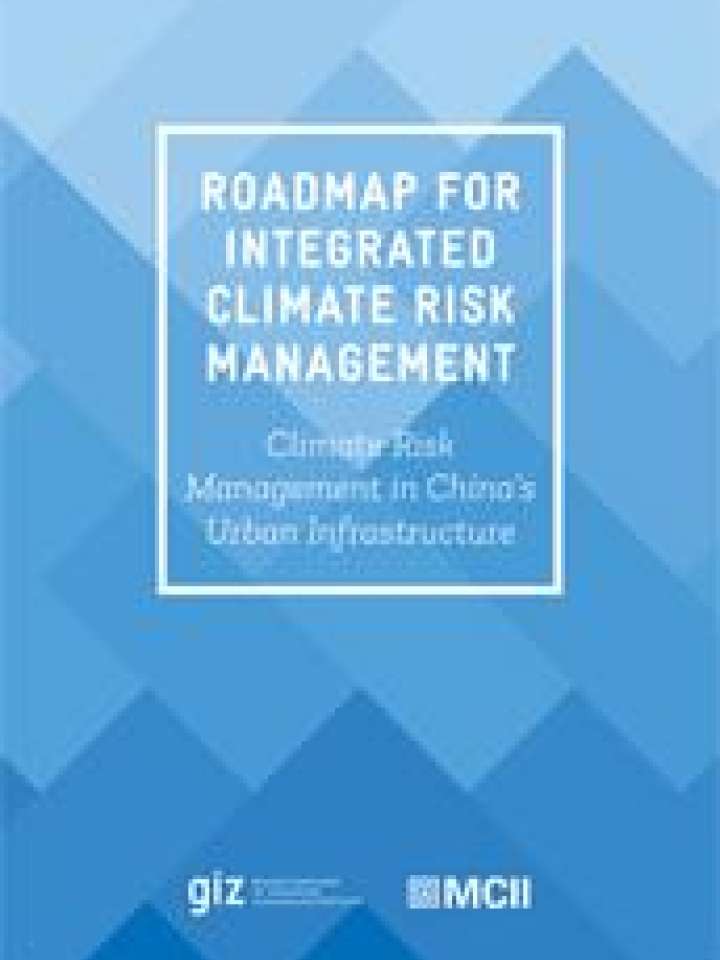Roadmap for integrated climate risk management: Climate risk in China's urban infrastructure
This roadmap is developed from work undertaken on integrated climate risk management through the “Advancing Climate Risk Insurance plus” (ACRI+) implemented by the Deutsche Gesellschaft für International Zusammenarbeit (GIZ) GmbH and the Munich Climate Insurance Initiative (MCII). In China, the ACRI+ project is working with public and private stakeholders to improve the resilience of urban areas and especially urban infrastructure prone to mid-long term climate and disaster risks.
The roadmap focuses on integrated risk management that aims to identify potential hazards and to reduce the impact and vulnerability by strengthening the coping and adaptation capacities of the society, according to the results of risk analysis. An integrated risk management approach also requires to establish a risk transfer solution to prevent risk residue and prevent new risks.
The roadmap is based on a pilot project in urban infrastructure in the Lishui City of China, which enables pilot city government to access climate risk transfer solutions as part of their integrated climate risk management mechanism, to improve the climate resilience of urban critical infrastructure and to systematically reduce the impact of climate risks on the economic, social and fiscal system.
Currently, there are significant barriers to implement integrated climate risk management and scale up risk transfer in the urban context in China. The roadmap identifies some of the major gaps, and suggests actions and measures that could be followed to address them. The roadmap makes recommendations about short, medium and long-term adaptation actions for different implementers in local government departments to solve specific problems with clear responsibilities.
Explore further
